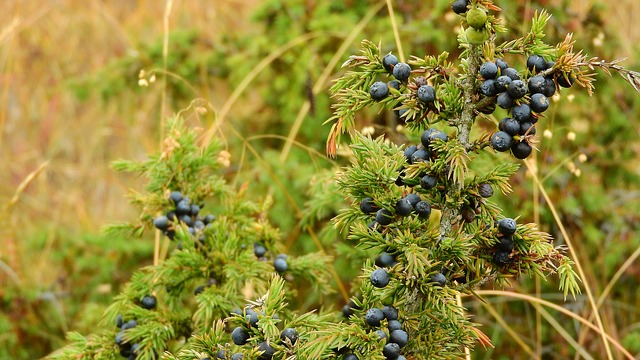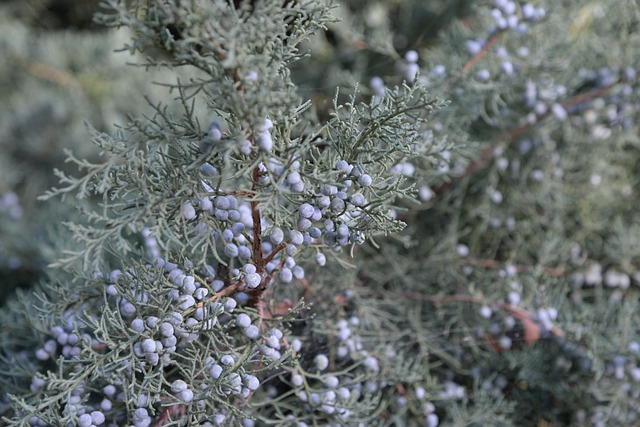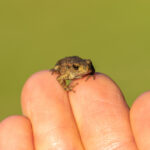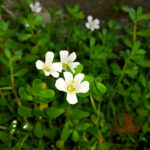This Juniper Herbal Interlude contains affiliate links. That means, if you purchase a product through one of the links, I make a commission at no additional cost to you. I appreciate it each time you click on or make a purchase from one of my links. Thank you for your support.
Juniper (Juniperus communis) and other varieties
With a special affinity for the urinary system, Juniper has been used all over the world, for at least 3000 years and probably more. It has a long history of use as a diuretic, urinary antiseptic, a soothing kidney remedy and much more. Sometime in the early 1900’s Juniper berries became known as a kidney toxin. The label stuck and warnings persist today.
History speaks a different tale. The eclectic herbalists of the 1800’s and 1900’s wrote about the use of the berries specifically for the treatment of kidney disease. Yet, the warning and fear of Juniper’s use is repeated over and over, even when modern studies show contrary findings.
The mistaken information can be traced to an incident of adulteration around the turn of the century. Adulteration happens when correct and incorrect plants are mixed. Sometimes it happens by accident, sometimes not. It depends on the supplier and the makers of products. In this case someone making Juniper volatile oil (essential oil) mixed juniper with a plant called Savin, a close cousin of Juniper. You guessed it, Savin is a kidney toxin.
Many studies have been done (click here for a list of studies taken from Richard Whelan’s website.) These studies offer no proof of Juniper causing nephrotoxicity. That said, studies are only a place to start. The rest comes through our personal relationship with the plant. Juniper works best in some situations and not well in others. The secret is in its energetics.
The Energetics of Juniper
Juniper is heating, drying, stimulating, decongesting, and dissolving. It is also an astringent and highly aromatic. Its strong action is best used for cold, congested, stagnant, boggy conditions. This may be seen by a whitish or furry coating on the tongue. Edema or swellings may be present, along with a kind of chronic ache in the low back and joints.
Juniper is contra-indicated when there is an active acute infection or inflammation. The oils are excreted in the urine and can be irritating to active kidney infections.
Parts Used and Preparations
The berries and leaves are most often used in medicine; however, the twigs and inner bark may also be used. Care should be taken to only harvest fresh ripe berries. Juniper berries can take 3 to 4 years to ripen. Unripe berries are a light gray or a frosted blue color. Ripe berries are dark blue-purple. Leaves, twigs, and the inner bark may be gathered as needed. Interestingly, Juniper berries are not really berries at all. They are small cones, sort of like small pinecones with a colored membrane.


The berries are more heating and activating and contain more essential oils. The leaf is more astringent.
Preparations
- Tincture 1:5 75% – suggested dose 20-40 drops 3 or 4 times per day
- Infusion made with 1 teaspoon crushed berries, a rounded teaspoon of leaves or mixed leaves and berries, steeped in 8 -12 ounces boiling water for 15 minutes. Suggested dose is 1 to 3 cups per day in 2-to-4-ounce doses.
- Ointment or oil – infuse berries, leaves or combination into oil. Let steep in warm oil, (between 110 and 130 degrees) for at least 48 hours. Longer is better. Care should be taken not to use hot oil. Heat will destroy essential oil constituents.
- Juniper essential oil may be used internally or externally. Suggested dose for internal use is 2 to 5 drops internally with a buffer (like in tea, or in a capsule.) Externally, use 5 to 15 drops in a teaspoon of carrier oil.
No preparation of Juniper should be given in doses larger than recommended above. Large doses or prolonged use can cause suppression of urine, strangury (a buildup of blood in the organs,) or hematuria (blood in urine.)
Chemical Constituents
Although like all herbs, Juniper has a complicated chemical signature, the main chemical constituents, which were reported in J. communis L. are α-pinene, β-pinene, apigenin, sabinene, β-sitosterol, campesterol, limonene, and cupressuflavone.
Medicinal Actions
Juniper is primarily used as a urinary tract disinfectant, antimicrobial, and diuretic for the treatment of cystitis (bladder infection,) urethritis (infection of the urethra) and chronic pyelonephritis (kidney infection.)
Juniper acts as a cleansing agent to the kidneys. As such, it will help increase the output of urine, decrease edema or swellings while eliminating excess uric acid and other metabolic toxicosis. This makes it helpful for chronic kidney infections and other urinary issues in the weak and elderly. For this purpose, look for a dragging feeling or weight across the kidneys. Juniper is also well-employed to help resolve low grade, recurring urinary infections, especially when there is puss in the urine, and/or when accompanied by other symptoms of dysuria. (See Natural Solutions for Urinary Tract Infections for more information). The herb is also well-used in formula to help eliminate urinary stones and symptoms of gout.
For internal uses, Juniper works best in formula. As an extremely stimulating botanical, very high in hot essential oils, mixing it with other herbs allows us to employ its healing properties while mitigating possible irritating constituents. To smooth and cool possible irritating properties, combine with demulcent, diuretic herbs like Marshmallow, Corn Silk, Plantain or Yerba Mansa. Michael Moore suggests adding cooling diuretic herbs like Uva Ursi, Manzanita or Pipissewa.
Anti-bacterial antimicrobial properties
Juniper is helpful for bacterial and fungal infections. One study by the School of Natural Sciences, at Griffith University in Australia found that both the tea and alcohol extracts of Juniper berry inhibited bacterial triggers of rheumatoid arthritis, ankylosing spondylitis, and multiple sclerosis. Although the water extract (infusion) had the broadest inhibitory action, the alcohol extract displayed antibacterial activity on 9 or the 13 bacterial strains tested. Both extracts were found most effective at inhibiting the growth of bacterium Proteus mirabilis, Proteus vulgaris and Staphylococcus aureus all common in UTI’s. Interestingly, the water extract was also effective at blocking the proliferation of the colorectal cancer’s cell line CaCo2 and cervical cancer cell growth. Additionally, all extracts were found to be non-toxic.
Juniper and rheumatism
Rheumatism is not a single disorder but refers to various painful conditions affecting joints, bones, cartilage, tendons, ligaments, and muscles. As an antirheumatic and antiarthritic remedy, Juniper acts as a neuromuscular stimulant. That means, it relieves rheumatic pain by helping to shift the muscular system to a parasympathetic nervous response. Chronic pain puts us in a constant state of stress. Stress puts us in the flight or freeze mode related to the sympathetic nervous system. Juniper first inhibits any microbial activity related to the condition of rheumatism, then relaxes, warms, and sooths the muscles and associated nerve tissue. The prime indication of Juniper for this use is chronic pain, accompanied by coldness. If your pain is worsened by cold or helped by heat, Juniper may be very helpful. I would use it externally as a paste, salve, oil, or ointment.
Other uses
As a gastric stimulant and carminative, Juniper berries work well to rid the digestive system of excess gas and pain. Chewing a few berries before meals will help stimulates stomach secretions, improve digestion, and relieve cramps and bloating.
Herbalist, Michael Moore considered Juniper a uterine vasodilator. He discussed drinking an infusion once a day, the last two weeks before the due date as a good uterine tonic to prepare for labor. Otherwise, the herb is contra-indicated during pregnancy as it may stimulate uterine contractions and induce miscarriage.
As a nice counterirritant, Juniper used externally makes a nice addition to a salve or oil to reduce arthritis and rheumatic swellings, relax muscles and help relieve pain. As a decongestive and circulatory stimulant, Juniper is a nice addition to any decongestant oil, or inhalation, helping to reduce congestion in the respiratory system and anywhere in the body. The salve proves helpful for many to relieve long-standing eczema and psoriasis.
Contra-indications
- Juniper should not be used in pregnancy as it may stimulate uterine contractions.
- Not for use in acute (hot) and inflammatory conditions.
- Only a small amount of Juniper is needed and is best used in formula and for a limited time. Prolonged use or large doses can cause suppression of urine, blood in the urine or cloudy urine, and proteins to be passed in the urine.

Suggested Products from Wonderment Gardens.
We Specialize in high quality, small batch, hand-crafted herbal products. Each made with love and integrity.
Further Reading




Astaxanthin and Lipothiamine – Memory Strengthening Strategies

References
https://wisdomoftheplantdevas.com/tag/navajo/
https://santafebotanicalgarden.org/november-2013/
http://student-doctor.dryarnell.com/2015/10/03/juniper-is-not-nephrotoxic/
https://www.henriettes-herb.com/eclectic/ellingwood/juniperus.html
https://www.henriettes-herb.com/eclectic/felter/juniperus.html
https://pdfs.semanticscholar.org/9474/3f982f9c75a8f5057c742994725ae108b7fa.pdf
https://www.hindawi.com/journals/isrn/2014/634723/
Coffman, Sam: The Herbal Medic, Volume 1; San Antonio Tx, 2014
Kane, Charles W: Medicinal Plants of the American Southwest; Lincoln Town Press, 2011
Moore, Michael: Medicinal Plants of the Mountain West; Museum of New Mexico Press, Santa Fe, NM. 2003
Frawley, David and Lad Vasant: The Yoga of Herbs Second Revised and Enlarged Edition; The Lotus Press, Twin Lakes, Wi. 2001
Holmes, Peter: The Energetics of Western Herbs Volume 1; Snow Lotus Press, Cotati, Ca. 2007
Hoffmann, David, FNIMH, AGH: Medical Herbalism, The Science and Practice of Herbal Medicine; Healing Arts Press, Rochester, Vermont. 2003
https://www.rjwhelan.co.nz/herbs%20A-Z/juniper_berries%20.htm
https://www.rjwhelan.co.nz/articles/pdf/juniper_research.pdf
Disclaimer
The statements and ideas presented here are not intended to diagnose, treat, cure, or prevent any disease or condition. They have not been evaluated by the FDA. All ideas presented are for the sole purpose of education. To help you take control of your own health. If you have a health concern or condition, consult a physician. We suggest that you always consult a medical doctor before modifying your diet, using any new product, drug, supplement, or doing any new exercises.
These statements and products have not been evaluated by the FDA. They are not intended to diagnose, treat, cure, or prevent any disease or condition. If you have a health concern or condition, consult a physician. Always consult a medical doctor before modifying your diet, using any new product, drug, supplement, or doing any new exercises.
Herbs taken for health purposes should be treated with the same care as medicine. Herbal remedies are no substitute for a healthy diet and lifestyle. If you are serious about good health, you’ll want to combine diet, exercise, herbals, a good relationship with your doctor and a generally healthy lifestyle. No one of these will do it alone.
This information is designed to be used as part of a complete health plan. No products are intended to replace your doctor’s care, or to supersede any of his/her advice or prescriptions.


Hi, glad you like the post. Yes, you may reference it for you work. thanks
Thank you, it means a lot that you’ve reached out. I appreciate your support.
Thank you, your support means a lot
Yes, here is the contact page https://wondermentgardens.com/contact/
Sounds like a great conversation starter. Yes, use the contact form or the appointments to schedule if you’d like to talk futhre.
Blessings
Thank you for your kind words. I wrote this article myself. I did not use a paid structure or ghost writer. I write all the work on these pages. The information comes from years of experience along with added research. Blessings to you.
Keep this going please, great job!
Very shortly this site will be famous
You are very kind
Superb, what a webpage it is! This webpage provides valuable facts to us, keep it up.
Thank you
It’s remarkable to pay a visit this site and reading the views of all colleagues about this piece of writing, while I am also
keen of getting know-how.
Your style is very unique compared to other people
I’ve read stuff from. Thanks for posting when you have the opportunity, Guess I will just bookmark this blog.
I think the admin of this website is truly working hard in support
of his website, since here every material is quality based information.
Hmm itt appears like your website ate my first comment (it was super long) so I guess I’ll just sum it up what I wrote and say, I’m thoroughly enjoying your blog.
I as well am an aspiring blog writer but I’m still
new too everything. Do yoou have any suggestions
for newbie blpog writers? I’d really appreciate it.
Also visit my blog: 3D Visualisation services
Have you ever considered creating an e-book or guest authoring on other websites?
I have a blog based on the same information you discuss and would love to have you share
some stories/information. I know my readers would enjoy your work.
If you are even remotely interested, feel free to shoot me an e-mail.
I have read some good stuff here. Certainly value bookmarking for revisiting. I wonder how much effort you place to create this sort of wonderful informative web site.
What I actually concern myself most about
is health ideas. On my own, I sign up for journals oriented toward this subject, and I maintain up
to date about the latest wellness studies. Just how
is this relevant? I feel there’s no more critical focus for
my hours. Likewise, this blog seems as though it’s well worth my time to check out again. I dig through tons or even more of websites weekly.
Honestly, my rear always hurts and I need a fresh new hobby.
lol Nevertheless, I believe if absolutely everyone
had written about their niche in the world, and did so clearly,
we’d have a more cool society. https://kids-Massage.njmassage.info/
Good day! Would you mind if I share your blog with my facebook group?
There’s a lot of people that I think would really enjoy your content.
Please let me know. Cheers
By all means please share! thank you
I want to thank you for your assistance and this post. It’s been great.